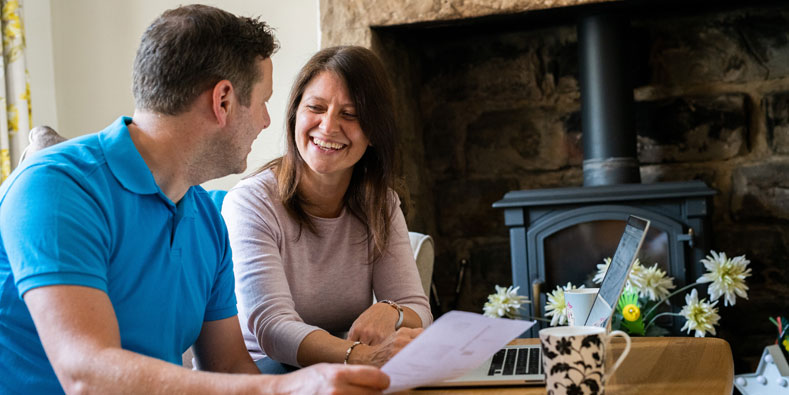Free training courses you can take to level-up your life
In this age of the web it’s never been easier to be...
One of the first things people think about when considering moving in with their partner is whether they’re actually going to be a good housemate.
Will they pick their socks up off the floor?
Do they do their fair share of the cleaning?
Will they know to wash the dishes in hot water and not freezing cold? (Don’t ask – it was a painful time for me!)
However, there are more important questions we should be asking, and they centre around two of the most awkward topics to talk about: money and debt. It’s important to have a full picture of your relationship’s financial situation before committing to building a life together.

We recommend starting off with these six simple questions:
It’s a good idea to sit down and have a look at your separate outgoings each month, and how much you’ll have to spend on household bills. Then you can see if each paying half is a good way to split the costs of living together.
When doing so, ask yourself:
You can split things right down the middle or work out a fair budget that everyone’s comfortable with.
There are pros and cons to having a joint account, and I don’t just mean using it to order the odd takeaway pizza when you can’t be bothered to cook!
On the one hand, having a joint account can be really handy for paying household bills and direct debits. It can also help you budget how much you need to put aside for essential spending when you get paid.
But on the other hand, there are financial risks. When you both put your name on a joint account, you become what’s called ‘financially associated’. That’s OK when you both have good credit records, but if one of you has problems it’ll affect the other person’s record. It’s best to steer clear of joint accounts unless you’ve both got a good credit rating.
Plus, some people feel strongly that just because you’re a couple, it doesn’t mean you need to join your finances too.
Me and my husband found out pretty quickly into our relationship who was the spender and who preferred to save, and nothing’s changed in 11 years! Knowing what each other’s spending and saving habits are can help you both create the best budget for your household.
Ask each other what your spending priorities are and share your money-saving tips, like this simple jam-jar technique, to make your budget work for both of you.

If there’s something in your future that you’d both need to save for, like getting married, home renovations or having a baby, thinking about the financial ins-and-outs early on can make a huge difference.
Chat about what your financial goals are and whether you both have the same ideas about saving. What drives you to save money? What budget amount for the big things do you have in mind? How can you support each other’s saving plans?
Utility bills are some of the most important bills you need to deal with, so if you’re moving in together and notice a rise in the amount of energy you’re using, it’s a good idea to check that you’re getting the best deal from your supplier.
Switching utilities is part and parcel of good budgeting, and it’s made much easier with comparison sites these days. Shop around together and find a deal that makes both of you feel warm!
While you’re talking about it, check out our energy-saving myths and see if you both have the same idea. Also, insulating your home is another way to save lots of money over the year.
This is a big one, but it’s so important to be upfront and realistic about debt with each other. Financial issues are one of the main causes of arguments between couples and worrying about your financial situation can make talking about it even harder. It’s also important to bring any potential issues to light now, such as having a a CCJ or relying on credit cards for living expenses.
Be honest and open with each other about your attitude to money and your financial situation. And most importantly, keep talking about it. Situations can change, so make sure you’re not bottling it up and hiding any debt and avoid troubles down the line. For more help, read our tips on how to talk about money and debt with your partner.
If either of you are worried that you have a debt problem, our 60 second debt test can tell you if you’d benefit from free and confidential debt advice.
Once you’ve had that honest chat about debt and money, why not start compiling a list of free or cheap stuff you can enjoy in your first week or month of living together?
You could get some microwave popcorn and settle down for a night in front of some free (and legally found) movies, go for a romantic walk or make each other a playlist, or cook up a storm in the kitchen and try your own ‘tasty meals for under £1’ challenge!
Have you and your partner asked each other these questions? Did you find any others useful? Let us know in the comments.